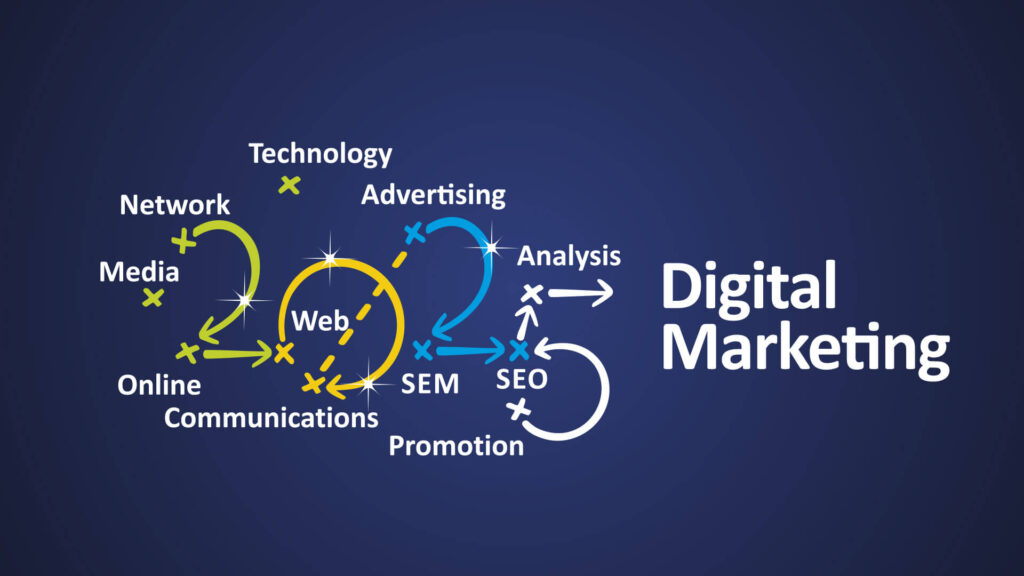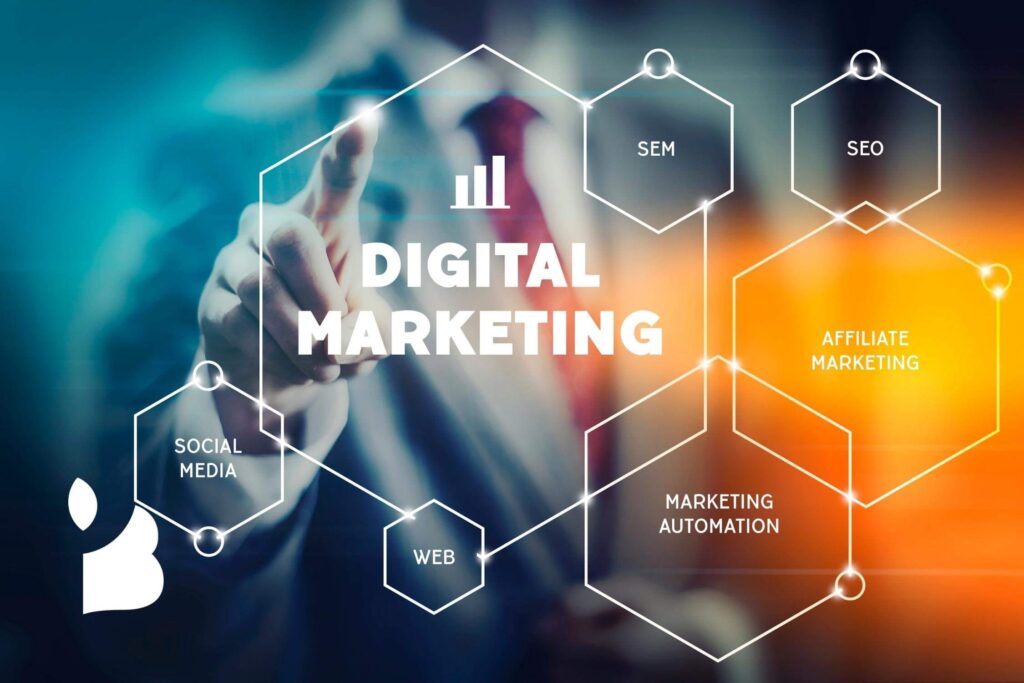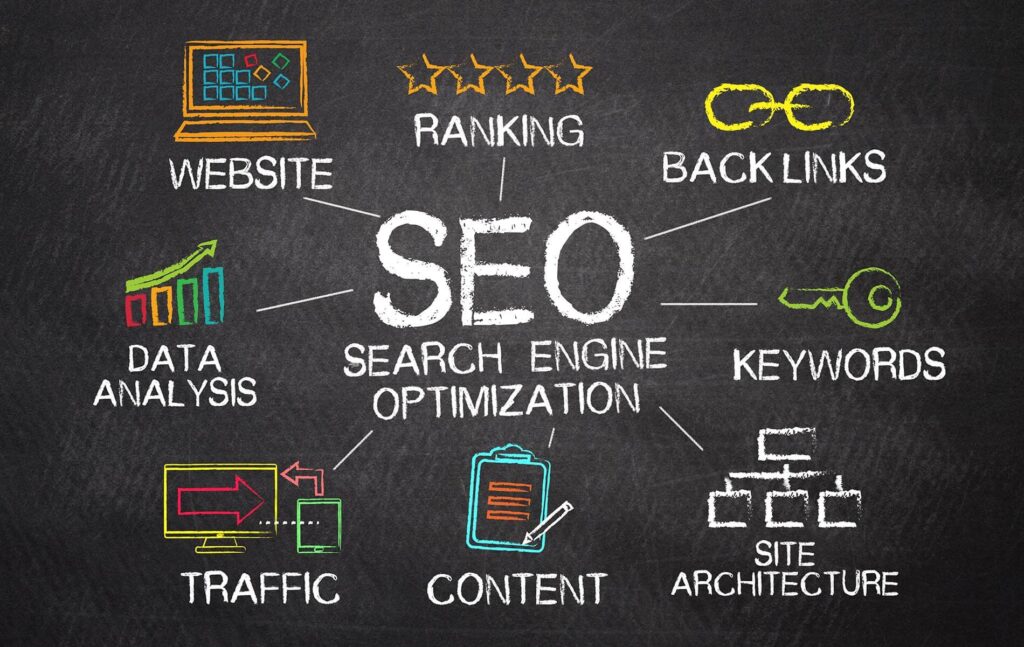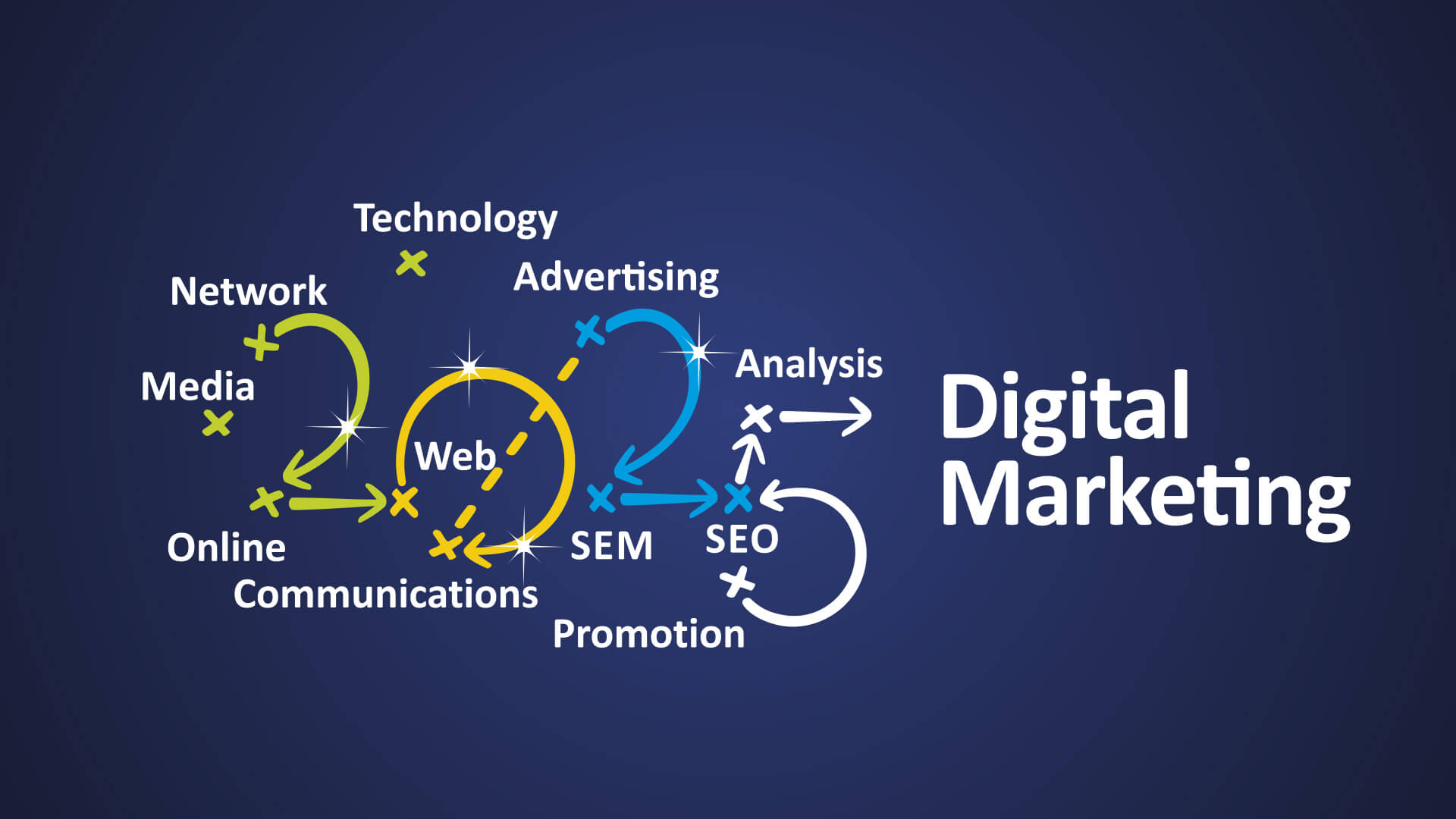

“The Future of Digital Marketing: Trends That Will Redefine Businesses – Insights from a Digital Marketing Strategist”
Digital marketing has evolved more in the last decade than in the fifty years of traditional advertising before it. From banner ads and emails to AI-powered personalization and immersive virtual experiences, the landscape has transformed beyond recognition. But the journey is far from over. According to a leading digital marketing strategist in Kochi, the next wave of innovation promises to reshape how brands connect with their audiences and how consumers experience marketing.
For businesses to stay competitive, working with a digital marketing strategist is becoming more crucial than ever. These professionals not only navigate emerging tools but also ensure that brands adapt to shifting customer expectations.
In this blog, we’ll explore the future of digital marketing, breaking down the key trends that will define the industry over the coming years.
1. Artificial Intelligence & Automation: Smarter, Faster, Better
Artificial Intelligence (AI) is the beating heart of the next era of marketing. Businesses are already leveraging AI in areas such as customer support (through chatbots), ad targeting, and predictive analytics.
Imagine a future where:
- Your email campaigns are written and sent automatically based on customer behavior.
- AI analyzes browsing history to recommend products in real time.
- Chatbots resolve complex queries while sounding more human than ever.
This level of automation allows marketers to focus on creativity while machines handle the heavy lifting. By 2030, AI is expected to power most decision-making in digital marketing, from content creation to budget allocation. A digital marketing strategist will play a vital role in integrating these AI tools into holistic strategies that balance efficiency with personalization.
2. Voice & Visual Search: Marketing Beyond Text
“Hey Siri, show me the top sports shoes under 1000.”
This is how millions of people now search online. Voice search is expected to account for 50% of all searches in the near future, and it requires marketers to rethink SEO strategies.
Instead of targeting short, typed keywords like “best shoes,” brands must optimize for natural language queries such as “What are the best shoes for marathon training?”
On the other hand, visual search is also on the rise. Tools like Google Lens and Pinterest allow users to snap a photo of a product and instantly find similar ones online. A digital marketing strategist will need to incorporate these search trends into SEO roadmaps, ensuring that brands remain discoverable across text, voice, and visuals.
3. Hyper-Personalization: Marketing That Feels Human
The days of one-size-fits-all campaigns are over. Consumers now expect marketing that speaks directly to them. Hyper-personalization uses AI and big data to create unique experiences for each individual.
For example:
- Spotify’s “Wrapped” playlist, which feels custom-made for every user.
- Amazon’s product recommendations that predict what you want before you search.
In the future, brands will leverage personalization at scale—delivering not just emails with your name but dynamic websites, tailored ads, and even customized pricing models based on your behavior. Here again, a digital marketing strategist will help align personalization tactics with business goals while respecting user privacy.
4. Short-Form Video & Interactive Content: Engagement Redefined
Video marketing isn’t new, but its dominance is growing stronger. Platforms like TikTok, Instagram Reels, and YouTube Shorts have proven that short, snappy videos are the most effective way to grab attention.
But the future goes beyond passive watching. Interactive content—such as shoppable videos, quizzes, polls, and live-stream shopping—will make consumers participants instead of spectators.
For instance, imagine watching a video ad for a fashion brand where you can instantly click to buy the clothes worn by the model. That’s the power of merging entertainment with commerce. Businesses that consult a digital marketing strategist can better design campaigns that maximize ROI from video and interactive media.
5. AR, VR & the Metaverse: Immersive Marketing
The next frontier of digital marketing is immersion. Augmented Reality (AR) and Virtual Reality (VR) are revolutionizing how consumers experience products:
- IKEA’s AR app lets customers preview furniture in their own homes.
- Beauty brands like L’Oréal allow virtual try-ons of makeup shades.
- Nike has launched virtual stores inside metaverse platforms where users can shop with avatars.
As the metaverse grows, brands will establish virtual showrooms, events, and experiences that mimic (or even improve on) real-world interactions. Marketing will shift from telling stories to creating worlds. A forward-thinking digital marketing strategist will help brands explore these immersive platforms without losing sight of their core audiences.
6. Data Privacy & Ethical Marketing: Building Trust
The rise of digital marketing has sparked major concerns about data privacy. With regulations like GDPR and the phasing out of third-party cookies, brands must rethink how they collect and use consumer data.
The future will see:
- A stronger emphasis on first-party data (collected directly from customers).
- Transparent, consent-driven marketing practices.
- Greater importance placed on ethics and trust.
Consumers are more likely to engage with brands that protect their data and communicate openly. For this reason, businesses often rely on a digital marketing strategist to design compliant yet effective campaigns that earn customer trust.
7. Omnichannel Marketing: Seamless Experiences Everywhere
Today’s customers move between platforms effortlessly—researching a product on Instagram, checking reviews on Google, and completing purchases on an app.
This demands an omnichannel approach, where brands provide consistent experiences across all touchpoints. In the future, advanced CRM systems and AI will help businesses track customer journeys across devices, ensuring that every interaction feels connected and personalized.
A digital marketing strategist ensures that these channels don’t operate in silos but instead deliver one unified brand experience.
8. Purpose-Driven Branding: More Than Just Products
Consumers are no longer just buying products; they’re buying into the values of a brand. Purpose-driven marketing—centered around sustainability, inclusivity, and social responsibility—is becoming essential.
The future consumer will favor brands that stand for something meaningful, making purpose-driven storytelling a cornerstone of marketing. A digital marketing strategist can help businesses align campaigns with authentic values to build stronger emotional connections.
9. Influencer & Community Marketing: The Rise of Trust
Influencer marketing has exploded, but the focus is shifting. Instead of mega-celebrities, brands are finding higher ROI with micro- and nano-influencers—creators with smaller but highly engaged audiences.
At the same time, community-driven marketing is on the rise. Platforms like Discord, Facebook Groups, and brand-owned forums allow companies to nurture tribes of loyal fans who advocate for them organically.
The future is not just about paying influencers but building genuine communities around your brand. Here, a digital marketing strategist can identify the right influencers and foster authentic community-building initiatives.
10. Advanced Analytics & Predictive Marketing: Knowing Before Asking
Data analytics will evolve from descriptive (“What happened?”) to predictive (“What will happen?”). With AI, marketers will be able to anticipate customer needs before they even articulate them.
For instance:
- A fitness app suggesting a new workout plan just as motivation starts to drop.
- An e-commerce site predicting when you’ll run out of a product and sending reminders to reorder.
This predictive power will create smoother, more proactive customer experiences while boosting conversions. A digital marketing strategist will be key to turning these insights into actionable strategies that deliver measurable growth.
Final Thoughts
The future of digital marketing is smarter, more immersive, and deeply personal. From AI-powered automation to AR-driven experiences, brands must adapt quickly to stay relevant. But amid all the technological innovation, one thing remains constant: trust and authenticity will always matter.
The winners in the future of digital marketing will be those who embrace innovation while staying human, ethical, and purpose-driven. And at the heart of this transformation will be the role of the digital marketing strategist—guiding businesses through change, ensuring strat
Blog
A Beginner’s Guide to Growing Online : In today’s digital-first world, businesses can’t rely only on traditional marketing…..
Blog
A Beginner’s Guide: It is possible to divide Search Engine Optimization (SEO) into two main categories: On-Page SEO and Off-Page SEO.
Blog
The Future of Digital Marketing: What to Expect in 2025 and Beyond :Digital marketing is evolving at lightning speed. The methods of yesterday may not meet the demands of tomorrow.



